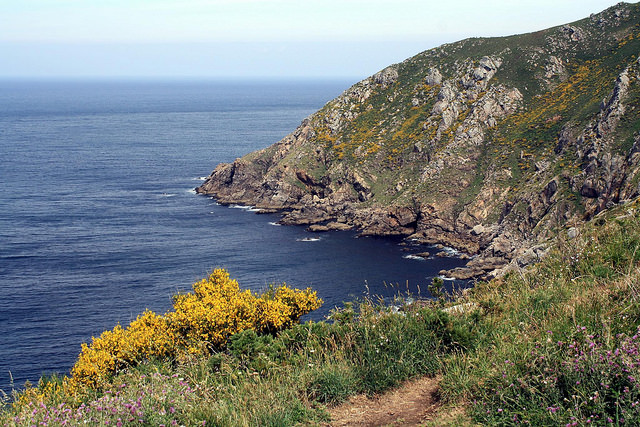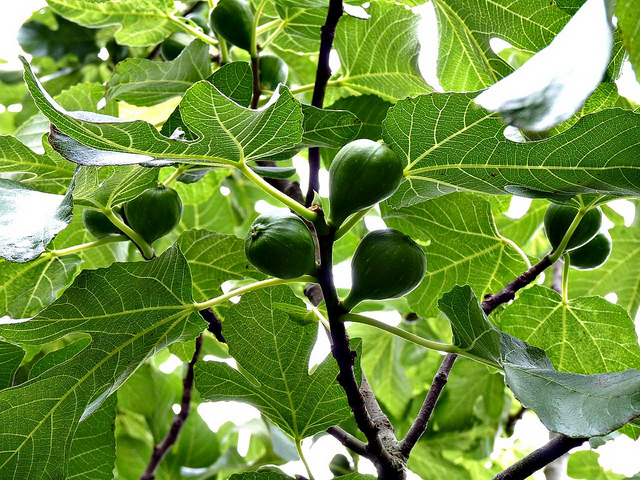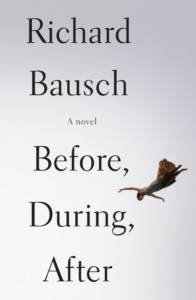By DANIEL TOBIN
The Cat’s Eye Nebula—one could begin
there as a way of showing how being
folds in upon itself, always to form
new configurations. That’s where we’re from,
By DANIEL TOBIN
The Cat’s Eye Nebula—one could begin
there as a way of showing how being
folds in upon itself, always to form
new configurations. That’s where we’re from,
By NEIL SHEPARD
June’s consuming,
stripping down darkness
to its thinnest hours,
swallowing sleep. Not
the fireflies, not the moon,
Never again will I feed the mustangs my mind,
Outstretched in the grey moon of morning.
Ours is a ritual of nevers, the lung’s nocturne
Some meager talk of Larkin
over quiche and pâté, olives
the proclaimed ragamuffin
picked at as though our lives;
Scavenging down the blue potholed hill, rocking
out of cobalt acid, they steam chromatic, these Elijahs
in their cloud wheels, fatherless and man-killing,
their guts bloated with red heat, lice, cast-iron-soldiers
By JAMES BYRNE
for Yusef Komunyakaa
Downtown, already snagged between two countries, I make stock footage for an English return—block after block, hobbling in unwalkable shoes, uptown from the Ground Zero memorial where, today, Obama laid wreaths and tousled the head of Cannizzaro: a one-year-old boy on 9/11.
By BRIAN SHOLIS
In a photograph Robert Adams took northeast of Riverside, California, in 1982, serpentine paths lead toward the horizon line; it’s not easy to discern whether these are creeks, dirt trails, or roads. Human presence takes the form of wooden poles carrying electric wires, which stride diagonally from the bottom left of the composition toward the distance at right. Scrubby brush covers the low hill that spreads out beneath Adams’s camera, a few trees poke up disconsolately here and there, and a larger hill dominates the right-hand edge of the picture. In the distance is the radiance of an invisible sun, an onrushing whiteness that presses toward the camera and blots out the landscape’s details.

Mid-May in Galicia. I was expecting rain and gloom but at five in the afternoon the sun is still high as I come down from the dusty hills into the town of Fisterra. Here, the path along the beach into town is made of flat stones that shine so brightly I can barely see. I want to stop someone and ask if this is heaven. I haven’t spoken a word out loud for hours.
This month it’s our pleasure to present new work from Korea: three poems by Lim Sun-Ki translated by Suh Hong Won.

Poet Lim Sun-Ki was born 1968 in Incheon, Korea. He graduated from Yonsei University Department of French Language and Literature and received his doctoral degree in Linguistics at L’université Paris-Nanterre (Paris X). In 2006, Lim published his first collection of poems, Poem in a Pocket, and a second collection, Flower and Flower Are Swaying, was published in 2012. His third collection, Winter Tidings Fall on the Harbor, was published recently in August 2014 (Munhak-dongnae press). He is currently a professor at Yonsei University Department of French Language and Literature.
Translator Suh Hong Won was born 1962 in Hong Kong. He received a bilingual primary and secondary education, spanning Korea, England, and Hong Kong, and graduated with a B.A. in business administration from Yonsei University. He then moved on to English literature and received a Ph.D. in English at the University of Notre Dame. A professor in the Department of English Language and Literature at Yonsei University, Suh’s interests lie in English renaissance poetry, esp. Milton, rhetoric and translation, and English education. He is currently translating into English all three collections of poetry by Lim Sun-Ki.

When the planes hit on September 11, 2001, I was in the F train. The conductor made a bland announcement regretting delays following “an incident.” “What incident?” I asked my neighbor. He shrugged. I arrived at my office at BusinessWeek, then at 6th Avenue and 48th Street, and watched the towers collapse on TV. My baby son was home with the sitter, my daughter at kindergarten. My husband was safe. No one I knew was hurt, miraculously. For months, I cried. I was terrified of a subway bombing. I tried to plan how we would evacuate in the event of a nuclear attack. On bicycles? With two small children? We don’t own a car. But a car would be useless. 13 years later, I can’t visit the World Trade Center site. My trauma was trivial compared those who were there or lost someone.